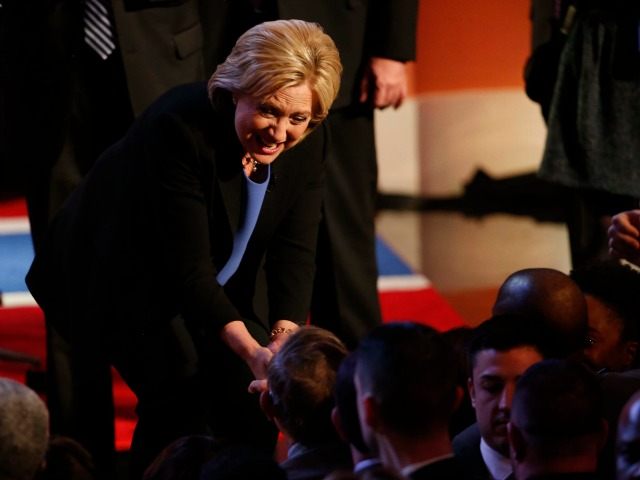The American public wants to know: is Hillary Clinton going to be indicted?
That was the most googled question during the Democrat Party debate last night.
Hillary Clinton’s legal future hangs over the 2016 election like a Sword of Damocles, threatening to immediately change the race. It’s a question not only of interest to Republicans but also Democrats who are trying to decide who they might vote for in the primaries.
The Clinton campaign strategy in the beginning was pretty simple: claim there is nothing to see here. But as evidence mounts that there is quite a bit to see in the ethical conduct of Hillary Clinton, Team Clinton has switched to a new tact: if there is something to see here, let American voters decide not law enforcement. In other words, law enforcement should not intervene in an election and determine whether the matters in question really matter.
But, of course, that is not how our criminal justice system works. (At least not for the rest of us.)
No one is above the law, even if they get more votes than the other guy in an election. Consider the recent criminal indictments and convictions: the Speaker of the New York Assembly, Sheldon Silver; the Majority Leader in the New York State Senate, Dean Skelos; U.S. Senator Bob Menendez; Virginia Governor Robert McDonnell; and Alabama Governor Don Siegelman, to name but a few.
All won elections but faced prosecution for their actions. You can debate the merits of some of these cases, perhaps, but the notion that law enforcement should stay out of it and let the voters decide is simply ridiculous.
There are certain parts of the world where winning elections can keep you out of legal jeopardy. But these are places we don’t want to emulate: corruption regimes in Latin America or Africa. No one is above the law.
The American public is ahead of the media on this one as they often are. Hillary’s biggest challenge is not poll numbers; it’s the real possibility of legal prosecution.
